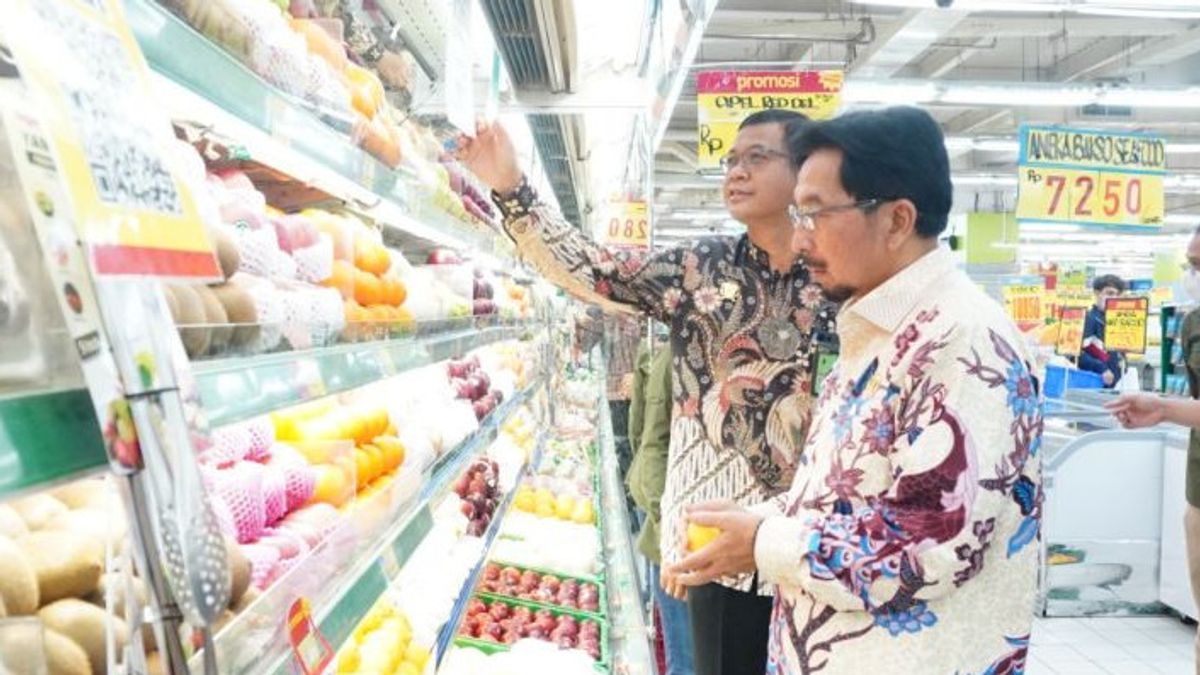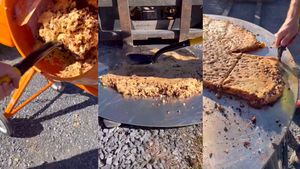JAKARTA - The National Food Agency (Bapanas) always meets the requirements for food safety, labeling and hygienic sanitation in product handling during circulation through fresh food safety tests in modern retail at the beginning of Ramadan 1444 Hijri.
Bapanas President Secretary Sarwo Edhy in his statement in Jakarta, Saturday, March 25, stated that the fresh food safety test was carried out by taking samples and testing quickly and testing with accredited laboratories.
"To see pesticide residue contamination and formaldehyde, as well as fulfillment of the requirements for labeling fresh food packaging, at least supervision has been carried out in 7 distribution locations, namely Kramat Jati Jaktim Market, South Jakarta Mayestik Market, New Market Bogor, Krauk Banten Main Market, Gede Bage Main Market Bandung, Lottemart and Hypermart in Bandung," he said, quoted from Antara.
Sarwo revealed that Bapanas had issued National Food Agency Regulation Number 1 of 2023 concerning Fresh Food Label and Body Number 2 of 2023 concerning Quality Requirements and Rice Labels.
"I hope that this agency regulation will soon be understood and can become a reference in ensuring the disclosure of fresh food information, both for producers and the public as consumers," he also said.
On the same occasion, Deputy for Diversity of Consumption and Food Safety, Bapanas Andriko Noto Susanto, ensured that the two agencies had begun to be socialized to related parties in order to provide understanding to ensure honest and responsible trade practices.
These regulations, he said, can serve as a guideline for any person or business actor who is required to include labels on the packaging to be circulated for the purpose of being traded, or for donations, government programs and/or government assignments.
"The inclusion of food labels is intended to ensure that fresh food products in circulation are guaranteed safety and tracing, which of course is beneficial for business actors in increasing the value of their products and guaranteeing protection for consumers," he said again.
Meanwhile, from the results of supervision carried out at modern retail Thamrin City, the Director of Supervision for the Implementation of Food Standards and Quality Sri Nuryanti explained that all rice traded and spices and commodities have a fresh food distribution permit number from plants (PSAT), both PL/PD/PDUK from OKKP and PIRT from the Health Office and ML from BPOM.
On that occasion, PSAT's example was also taken to carry out a rapid test of residual pesticides for the organofosphate class, namely onions, curly red chilies, tomatoes, potatoes, wines, cucumbers, cabbage, carrots, strawberries, pineapple, melons, spinach vegetables, broccoli, and sweet corn and Fresh Food. Animal origin (PSAH) in the form of chicken meat, beef, and bloating fish.
"From the results of the rapid tests carried out, it shows that 13 of the 14 PSAT examples meet food safety requirements from aspects of pesticide residue and PSAH examples meet food safety requirements from the formalin aspect," he said.
Meanwhile, PSAT which is indicated to contain pesticide residue with activated material licensed above the threshold is spinach vegetables. As a follow-up, spinach samples will be further tested in accredited laboratories to find out more accurately the residue content of pesticides.
"To increase the security and quality guarantees of the trafficked PSAT, we hope that retailers can pay more attention to the requirements for distribution permit numbers for PSAT which will be supplied and meet all other requirements based on regulations issued by the National Food Agency," he also said.
The English, Chinese, Japanese, Arabic, and French versions are automatically generated by the AI. So there may still be inaccuracies in translating, please always see Indonesian as our main language. (system supported by DigitalSiber.id)













